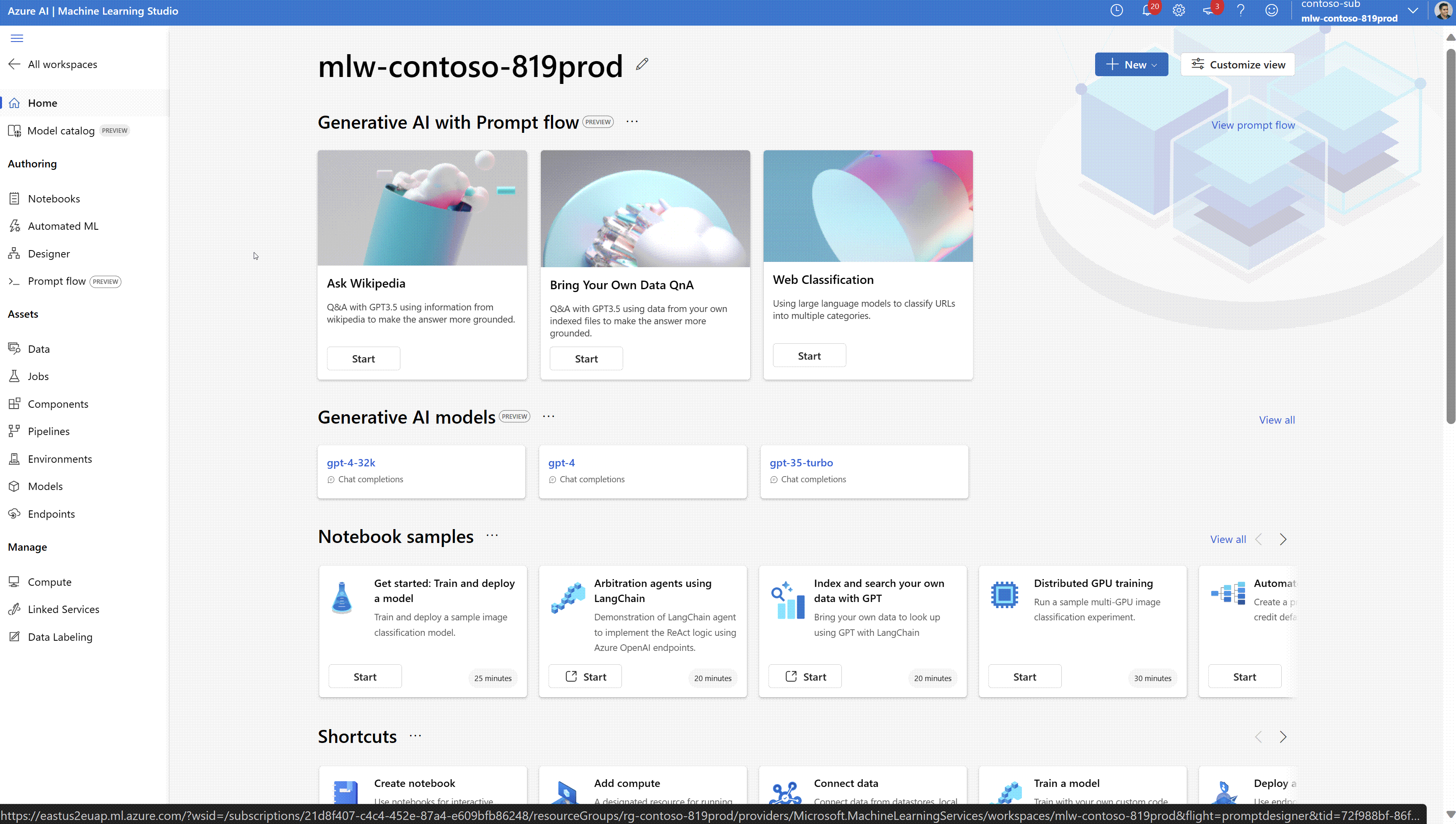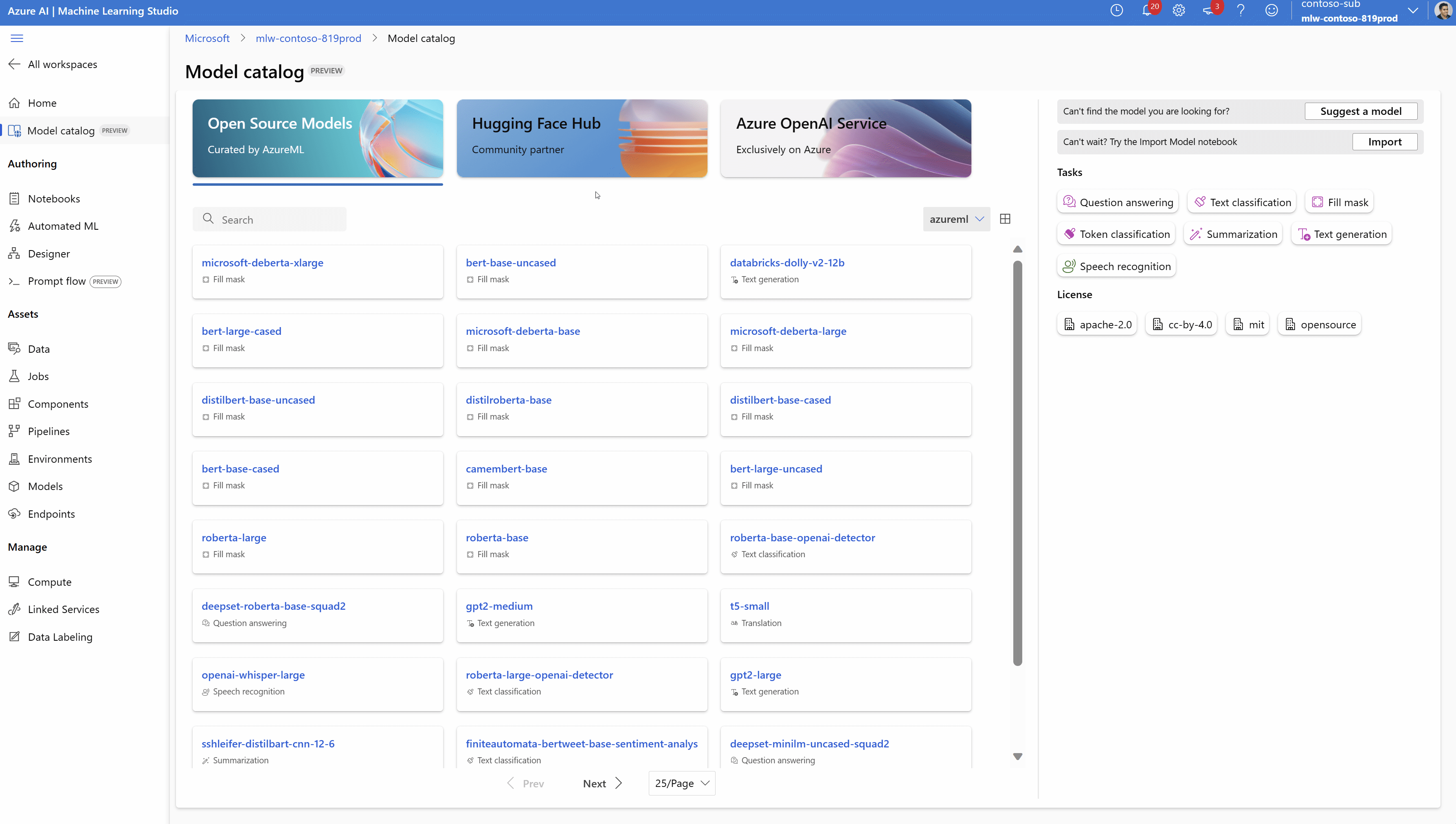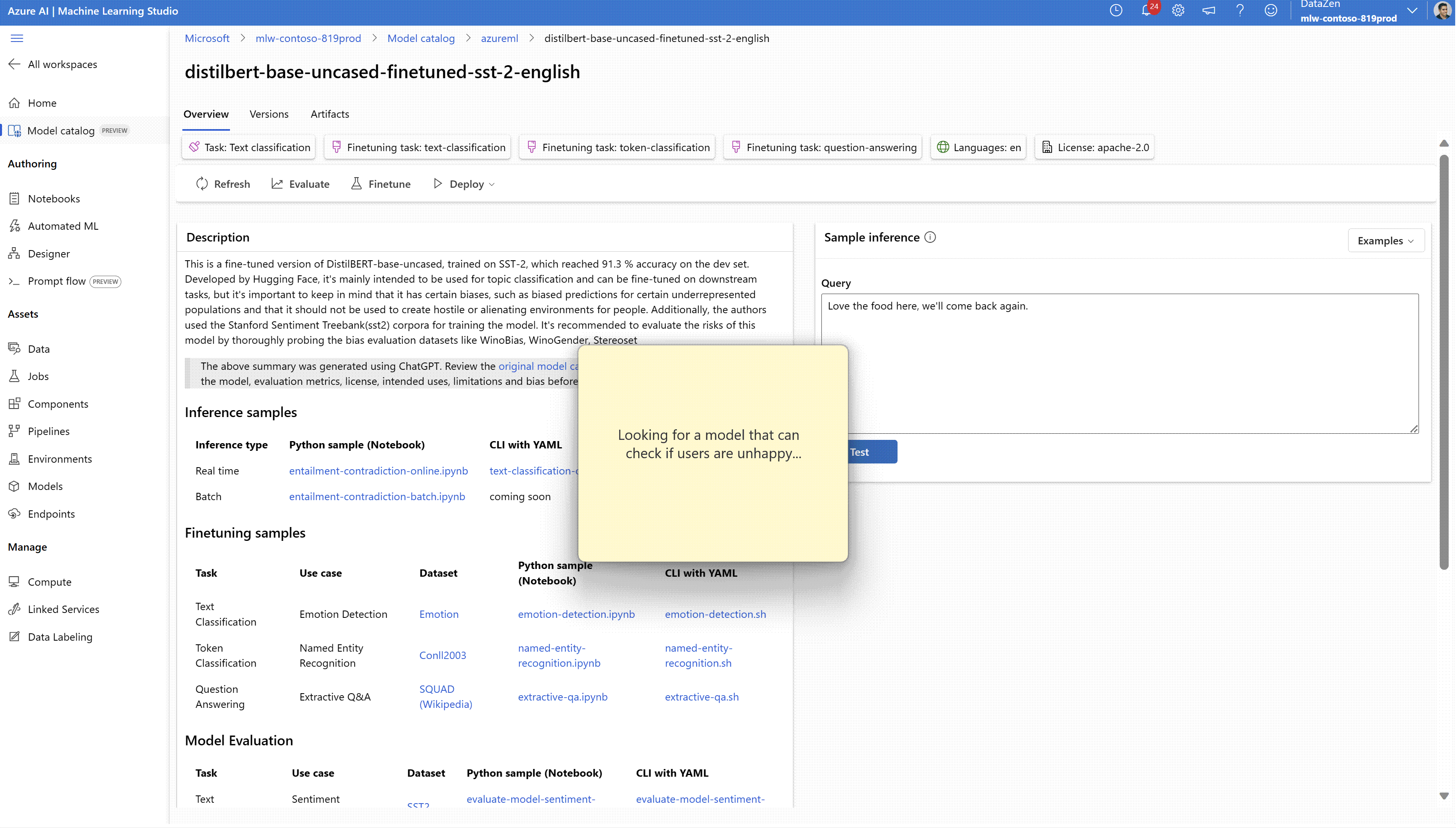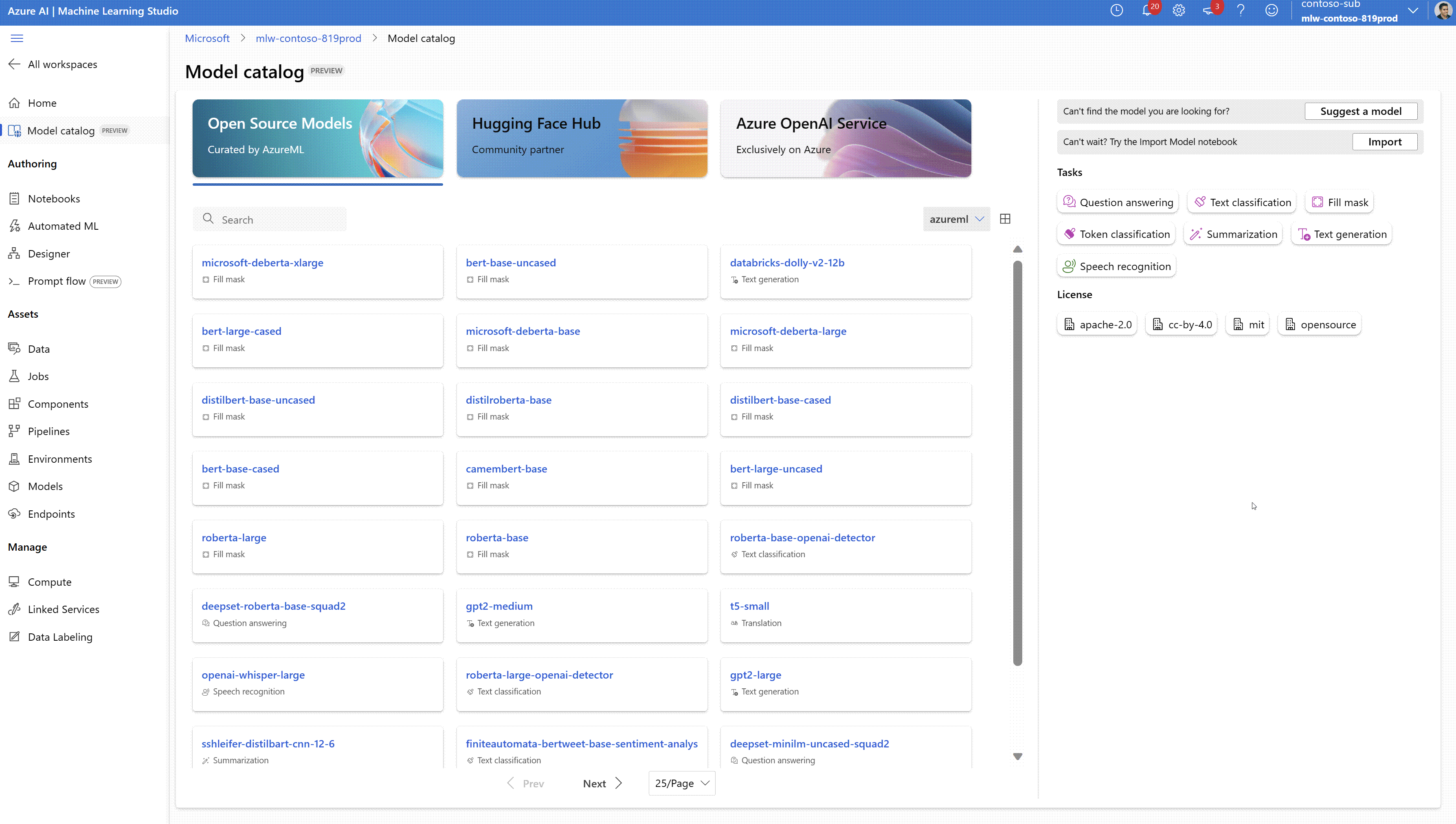Over the past decade, Artificial Intelligence (AI) has been revolutionizing every industry, from manufacturing and retail to finance and healthcare. In recent times, AI has made significant progress, thanks to the development of large scale foundation models. These foundation models, which are trained on massive amounts of data, can easily be adapted to perform a wide variety of tasks, including natural language processing, computer vision and generative AI tasks to create new content. Foundation models have enabled machines to perform many complex tasks that were previously thought to be the exclusive domain of human intelligence. Applications include translation apps, creative content generation and virtual chat assistants, to name a few.
In Azure Machine Learning (AzureML), we are constantly looking for new ways to enable our customers to easily build, train and deploy ML models. Today, we are excited to announce the public preview of foundation models in Azure Machine Learning, which empowers users to discover, customize and operationalize large foundation models at scale through the model catalog. The model catalog is your starting point to explore collections of foundation models. It offers a collection of Open Source models curated by AzureML (described in detail in this blog post), a Hugging Face hub community partner collection, and a collection of Azure OpenAI Service models (available in Private Preview to AzureML Insiders). With this new capability, our customers can easily access the latest foundation models and accelerate the use of these models for fine-tuning, evaluation, deployment and operationalization in their own specific workloads.
In the past, managing and using large models has been a cumbersome task, with customers having to manage the infrastructure and environment dependencies for these models. The new native support for foundation models in AzureML manages all these infrastructure dependencies for users in a seamless fashion, with out of the box support for model fine-tuning and evaluation. Additionally, training and fine-tuning large models has typically been a compute and time intensive task. The foundation models in AzureML include optimizations like Deepspeed and ORT (ONNX RunTime), which speed up fine-tuning, and LoRA (Low-Rank Adaptation of Large Language Models), which greatly reduces memory and compute requirements for fine-tuning.
When customers leverage foundation models in their ML workloads, there are some fundamentals to consider. Firstly, they need an easy way to discover models and evaluate if a model is suitable for the task at hand. To that end, we are introducing a model catalog for foundation models, which is a hub for discovering foundation models in AzureML. The Open Source Models collection is a repository of the most popular open source foundation models curated by AzureML. These models are packaged for out of the box usage and are optimized for use in AzureML. Currently, it includes the top open source large language models, with support for other tasks coming soon. We also provide the ability to import more models from Hugging Face. With this capability, you can easily import any of the thousands of models from Hugging Face for supported tasks - allowing you to always bring in the latest models into AzureML and use them within a matter of minutes.

You can quickly test out any pre-trained model using the Sample Inference widget, providing your own sample input to test the result. For e.g.

You can also evaluate the model with your own test data to see how the pre-trained model would perform in your own use case. The evaluation metrics make it easy to visualize how well the selected model performed on your own test data. Leveraging AzureML’s powerful experimentation and tracking capabilities, you can also compare the performance of multiple models side-by-side to pick the one that would perform best in your scenario. For e.g.:

Next, we hear a very strong need from customers to be able to customize these large foundation models by fine tuning them using their own data. In AzureML, we make it very easy to finetune these models using either UI based or code based methods. The fine tuning job executes in your own workspace and you can rest easy knowing that the training data you provide for fine tuning these models is accessible only in your own workspace.

Finally, we hear about the need to easily operationalize these large foundation models at scale. Whether you choose to deploy the pre-trained foundation model or the customized model that has been finetuned with your own data, AzureML ensures that you can accelerate the deployment and management of these models with industry-leading machine learning operations (MLOps) capabilities. Deploy and score models faster with fully managed endpoints for batch and real-time predictions. Use repeatable pipelines to automate workflows for continuous integration and continuous delivery (CI/CD). Continuously monitor model performance metrics, detect data drift, and trigger retraining to improve model performance.

The true potential of large foundation models can be fully realized only when we make them easily accessible to a wider audience. With the new Foundation Models in AzureML capabilities, we hope to empower every organization, developer and data scientist, regardless of their skill level or organizational size, and in doing so, truly democratize AI. This is just the beginning – as support for Azure Open AI Service models is available in Private Preview and we look to add support for many more tasks and model families in the future. We are incredibly excited to see what you can build with these state of the art capabilities!
Learn more
- Get started with Foundation Models in AzureML at https://ml.azure.com/model/catalog
- Read the documentation to learn How to use Foundation Models in Azure Machine Learning (preview) - Azure Machine Learning | Microsoft Learn
- Watch the Azure Machine Learning Breakout sessions:
- Sign up for Private Preview access to Azure OpenAI Service models by becoming an AzureML Insider.
- Read related blog posts:
 Microsoft
Microsoft